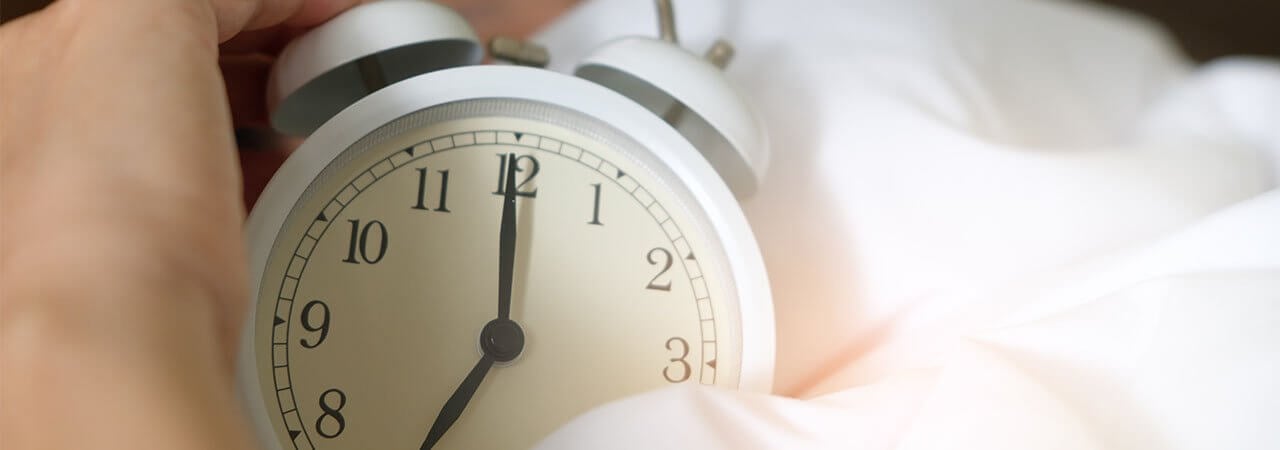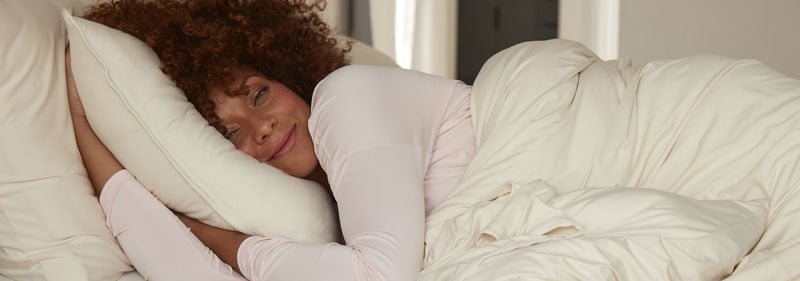If you're an ambitious thinker whose mind races at a mile per minute, you're not alone. Most of us are caught up in the hustle and bustle of daily living trying to strike a healthy work and life balance. And oh boy, we all know it can be daunting. With a mountain of things on our to-do lists, we tend to lose sleep. That's when insomnia creeps in and it doesn't care if you're sleeping at home or traveling for work.
According to the National Sleep Foundation, "individuals with insomnia experience difficulty falling or staying asleep, a lack of restorative sleep, and daytime symptoms such as fatigue, trouble concentrating, and mood disturbances." Because we know that ambition never sleeps, we want to make sure that you are getting your needed rest.
1. Try avoiding the late-night snack.
Those leftovers from earlier are looking so good. Unfortunately, they're not to be eaten as a late-night snack. As much as we've gotten into the habit of eating when our bodies seem to be telling us that they're hungry, you mustn't give in. Combating insomnia becomes a lot harder when your body begins to think it's time to eat at midnight. We recommend you eat early and eat a light dinner so you can digest properly and sleep peacefully.
2. Don't stay awake in bed.
When sleep seems like a stranger, don't toss and turn in bed and try to make sense of it by lying there. Get up and move to another place. Head to the living room and sit in a chair with a book or magazine you've already read. This will slow down your thoughts a bit and is known for helping people to sleep. When you start to feel sleepy, you can return to bed. If you cannot fall asleep in another 15-20 minutes, repeat the process until you drift off into dreamland.
3. Don't work out just because you can't sleep.
A workout routine is good for boosting performance and sleep recovery. Working out just because you can't sleep not only keeps you up when you really should be sleeping but also throws off your existing workout schedule. Instead, you may choose to do some light, relaxing stretches or concentrate on breathing slowly inviting the urge to workout to disperse.
4. Try this proven, stress-reducing wearable, TouchPoints from TouchPoint Solutions.
Our trusted partners in sleep at TouchPoints created sleek wearables to help reduce stress. Whether you’re struggling to fall asleep or encounter a bout of anxiety during the day, TouchPoints are proven to help.
Their website reads, “Developed over several decades by a team of neuropsychologists, TouchPoints use gentle, alternating vibrations to modify your response to stress, rapidly shifting your ‘fight or flight’ response to a more serene, balanced state and putting you back in control."
TouchPoint’s data shows that within just 30 seconds of using TouchPoints, people experienced a 74% reduction in their stress levels and a 68% reduction in body sensations related to stress. If you have difficulty falling asleep, simply place your TouchPoints inside the included zippered sweatbands on your wrists or ankles 15 minutes before bedtime. Your TouchPoints will shut off on their own - they have a built-in 30-minute timer so you don't have to worry about turning them off once you fall into your restful night's sleep.
5. Lower your caffeine intake.
As the busy bee, you probably exhaust yourself with countless cups of caffeinated beverages. While this may be helpful when jump-starting your day, too much caffeine can alter your sleep patterns — making it nearly impossible to get a good night's rest. If you want to face insomnia head-on, try limiting your caffeine intake to just earlier in the day. Avoid those late-night cups of coffee and other drinks, too. As much as we like to claim that caffeine doesn't affect us, it absolutely does. Medium suggests opting for a decaffeinated tea or coffee in the later hours of the day so your body can be caffeine-free by bedtime.
6. Try placing your phone elsewhere and turning your TV off at bedtime.
As tempting as it is to reread that email from your boss, don't. It's imperative that you leave that screen glow to accompany the morning sun. From a study in the journal PLOS One, "exposure to smartphone screens, particularly around bedtime, may negatively impact sleep." Your TV is another piece of technology that causes more harm to your sleep patterns than it does good. We all love those late-night reruns. However, it is crucial to power off the TV if you want to get the restorative sleep your working mind deserves.
7. Create a consistent bedtime.
A good way to tackle insomnia is to condition your body to learn when to expect to be awake and asleep. It can be challenging to accomplish this in our busy worlds but try to go to bed and wake up at the same time every day. This will get your body in sync with a sleep time that works for you. When your designated bedtime rolls around, you can shut off the rest of the day and lay your head on our fluffy, yet supportive, pillows.
8. Get creative by reading a book or writing in your journal.
Reading a book is a great way to fight insomnia — particularly a book you've already read so you won't fall victim to the hook effect you get when cracking open a new book. Another practice that can keep you productive while fighting insomnia is jotting down various thoughts in your journal, especially to-do lists. According to a study in the Journal of Experimental Psychology, shared by TIME, "people who wrote down future tasks they wanted to accomplish fell asleep faster than those who wrote about things they'd done that day." Whether it be personal matters or a to-do list that has your mind wandering, writing it down in the pages of your journal can ease the apprehensive mind. When day breaks, take a look at your thoughts and deal with them then.
9. Complete the small task you've been meaning to get done.
If your insomnia just won't budge, take advantage of the small amount of time you have with yourself. Completing a quick task such as throwing out old food from the pantry or organizing your bookshelf can help get your mind to relax. Once those are off the to-do list, you might feel a little more at ease and ready for a restful, not restless, night of sleep.

























